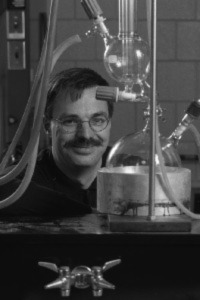U of G Researcher Finding Solutions to Skin Cancer

Melanoma, otherwise known as skin cancer, causes approximately 60,000 deaths worldwide each year. In 2022, over 9,000 Canadians will be diagnosed with skin cancer and 1,200 are expected to die from the disease. The main cause of skin cancer is Ultraviolet (UV) radiation. UV radiation causes cancer by direct damage to DNA and also creates reactive oxygen species, which damage skin cells and also cause cancer. The main ways to prevent skin cancer caused by UV radiation include avoiding the sun unprotected for long periods of time, applying sunscreen and wearing protective clothing. A current focus of cancer research is to develop prevention strategies that go beyond these primary prevention measures. These include compounds that might augment sunscreen by reducing the formation of reactive oxygen species.
Beyond eating your green vegetables
University of Guelph (U of G) chemistry professor Dr. Michael Denk collaborated with Dr. Robert Lennon from Pennsylvania State University to explore the use of folate derivatives to reduce reactive oxygen species before they can cause skin cancer. Folate derivatives are naturally occurring in many foods, such as dark green leafy vegetables and oranges, and are essential for cell division and DNA creation. Dr. Denk synthesized folate derivatives at U of G, then sent them to Dr. Lennon in the United States for testing.
Melanoma and fibroblast cells were grown in a controlled laboratory environment and then exposed to different concentrations of folate derivative. These cells were then subjected to reactive oxygen species through either UV radiation, hydrogen peroxide (H2O2) or a combination of the two. The level of reactive oxygen species was measured over time to determine if folate derivatives could successfully inhibit cell growth.
Lower concentrations of reactive oxygen species
The research findings revealed that folate derivatives can inhibit the formation of reactive oxygen species, which in turn is expected to decrease cancer formation. Denk and team’s research offers a potential method for reducing the tremendous health burden of melanoma on individuals and the Canadian health care system.
“While we know that folate derivatives can do the task of inhibiting oxygen species, more research is needed to determine the extent to which reactive oxygen species inhibition decreased carcinogenesis,” says Denk. “We plan to continue our work and learn from further cell studies. The most promising outcomes will be tested eventually in murine trials and, ultimately, human efficacy trials.”

Dr. Michael Denk is an Associate Professor in the Department of Chemistry
This work was supported by the Penn State Clinical and Translational Science Institute.
Lennon R, Gowda K Denk M. The potential of folate derivatives and Hantzsch esters to inhibit ultraviolet-induced reactive oxygen species. Ann. Fam. Med. 2022 Apr 4. doi: 10.1370/afm.20.s1.2884.